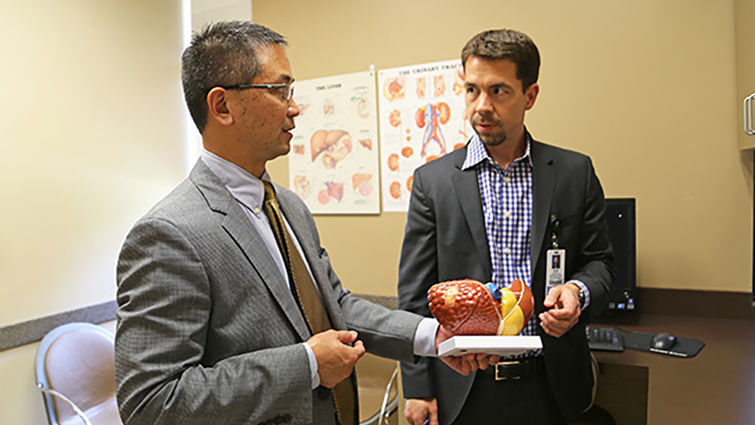
Dr. Michael Volk
Michael Volk, MD, says he has observed a significant increase in alcohol-related liver disease since March 2020. As the division head of gastroenterology and hepatology at Loma Linda University Health, Volk warns that too many people are using alcohol to alleviate stress amid lockdowns, economic uncertainty, and social isolation.
Volk says the higher rates of heavy drinking are especially apparent in teens and women with alcohol-related liver disease — both demographics that are experiencing increased acute alcoholic hepatitis. According to a 2021 study, women were diagnosed at a 125% increased rate of alcohol-related hepatitis during the COVID-19 pandemic.
Volk says he often sees previously healthy individuals who begin to feel ill due to heavy drinking. Over several weeks, they become jaundiced and seek help with an inflamed liver, at which time, help is well overdue.
“Particularly in young people, the tragic thing is by the time they start getting sick and have stopped drinking, it's often too late, the liver disease gets worse, and they sometimes die of it,” Volk says.
Things to keep in mind
- Genetic variabilities leave some more susceptible to alcohol-related diseases than others.
- Bariatric surgeries, such as gastric bypass, dramatically increase the susceptibility to alcohol-related liver disease.
- Loma Linda University Health recommends abstating from alcohol.
- Volk enocurages turning to healthy coping mechanisms such as confiding in loved ones, exercise, and spirituality.
To support a loved one that may have an addiction, Volk emphasizes the importance of understanding that alcoholism is a disease and not blaming them personally.
Learn more about liver disease services and treatments at Loma Linda University Health here.
